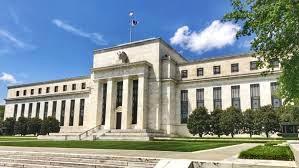It is axiomatic that a strong U.S. economy is beneficial for the poultry industry. Availability of capital allows for investment in expansion and installation of equipment that promotes efficiency. Increased spending power encourages consumption reflected in higher demand and margins. At the end of the first quarter of 2024, the U.S. economy is strong but is vulnerable to inappropriate fiscal policy and political pressures. Over the past five years, the U.S. economy has grown eight percent in real terms compared to the E.U. at three percent, Japan at one percent and negative growth among other nations.

Despite successive rate increases as determined by the Federal Reserve FOMC, unemployment has remained at an exceptionally low level, currently 3.9 percent and the economy is moving towards a “soft landing”. Economists suggest that despite proving “sticky” inflation should decline to approximately 2.2 percent on an annual basis by the end of 2024 with a concurrent forecast of a 3.2 percent growth in GDP. This, in large measure, has been achieved through increased productivity with a 2.6 percent increase in the non-farm categories and 0.6 percent overall.
The U.S. achieved the current, favorable position through injection of capital during the immediate post-COVID years. This largesse was accompanied by an average deficit of 14 percent of GDP in 2020 and 2021 compared to less than half this level among Euro nations. Other factors contributing to a favorable situation include energy independence and the relatively low cost of the range of fuels used compared to the E.U. The labor force has increased to approximately 160 million workers, up four percent from 2019. This has been driven by immigration with the foreign-born component up by 16 percent since the advent of COVID. Despite immigration, unemployment is at a low level under 4 percent with 10 million positions open albeit with moderate wage increases.

Despite the current favorable situation, there are certainly clouds on the horizon. Stimulation of the economy through government spending is widening the national deficit. In 2022, the deficit was 4.0 percent of GDP but rose to 7.5 percent in 2023. The nation is now spending as much on annual interest as it does on defense. One concern is the high proportion of debt held by China that is experiencing a decline in their economic growth and the holdings by other “unfriendly” nations. Problem areas include delinquency on credit cards suggesting that consumer spending, a major driver of the economy, will falter. This is despite the fact that high-income consumers representing 20 percent of earners are responsible for 45 percent of consumption. It is inevitable that this demographic will tighten their purse strings. Restrictive climate-related legislation is imposing costs on the economy. As an example the U.S. is currently the world's largest supplier of LNG. Executive orders limiting expansion of export terminals will be detrimental to reversing the foreign trade deficit. The property market appears vulnerable to sustained high interest rates and post-COVID factors including work-from-home have reduced occupancy rates for commercial property that cannot be converted to housing to provide an equivalent return. This may reflect on the stability of regional banks that are vulnerable to now questionable security and the performance of their loan portfolios.
Of greatest concern will be the policies implemented by the eventual winner of the 2024 Presidential election. The opposing candidate is expressing views that promise extreme protectionism with high tariffs. This would be detrimental to the economy. Concurrently an anti-immigration bias would deprive U.S. industry of necessary workers. Interference in the independence of the Federal Reserve would also be detrimental to the standing of the U.S. as evidenced by the economies of nations such as Turkey where injudicious political pressure over interest rates has proven disastrous to the value of the Nation’s currency. Promises to lower taxes if they eventuate will markedly reduce revenue and widen the national debt as has occurred under the present and previous Administrations.
The incumbent candidate is promising to raise taxes on corporate earnings and on high-income earners who are the most innovative and productive. In many respects the programs to be implemented are also protectionist although it is questioned as to whether pronouncements during the 2024 State of the Union address were political rhetoric or a firm intention of policy during a second term. The proposed program of spending would intensify the magnitude of the national debt. Attempts to reverse climate change would have profound impacts on the energy industry, vital to the economy. Injudicious spending on social programs will add to the national debt especially if “investment” is not realized over the short or even intermediate term.
Policies and programs implemented by the USDA in recent years using funding from the CARE Act that are intended to encourage local production and assist the “disadvantaged and under-represented” may not even contribute to intermediate-term productivity. Attempts to restructure the meat industry are quixotic and contrary to the realities of economies of scale and efficiency. From the perspective of providing inexpensive protein, oligopolies should be tolerated with appropriate protection for farmers, given the needs to supply the domestic and export markets, some of which are eroding.
Despite the favorable economic situation as quantified each week in the EGG-NEWS Economy, Energy and Commodity Report, some changes will be necessary to ensure a “soft landing” as anticipated. Both candidates for the Presidency should now moderate their rhetoric and adopt acceptable and productive economic policies based on sound economic principles. The Federal Reserve should address the issue of the delay in reducing interest rates given the trajectory in the decline in inflation to three percent. It is noted that eleven previous cycles of suppressing inflation by increasing interest rates, the economy entered into recession ten times. A repetition could be averted by three rate cuts from June onwards. Currently, the economy is in good hands. Let us hope prudence and sound judgment resist the temptation to impose isolationism or to continue with intemperate government spending, throttling the energy industry and failing to introduce a rational program of immigration. Hopefully, politicians and economists will see common ground and continue to guide the progress of our Nation for the benefit of both producers and consumers.